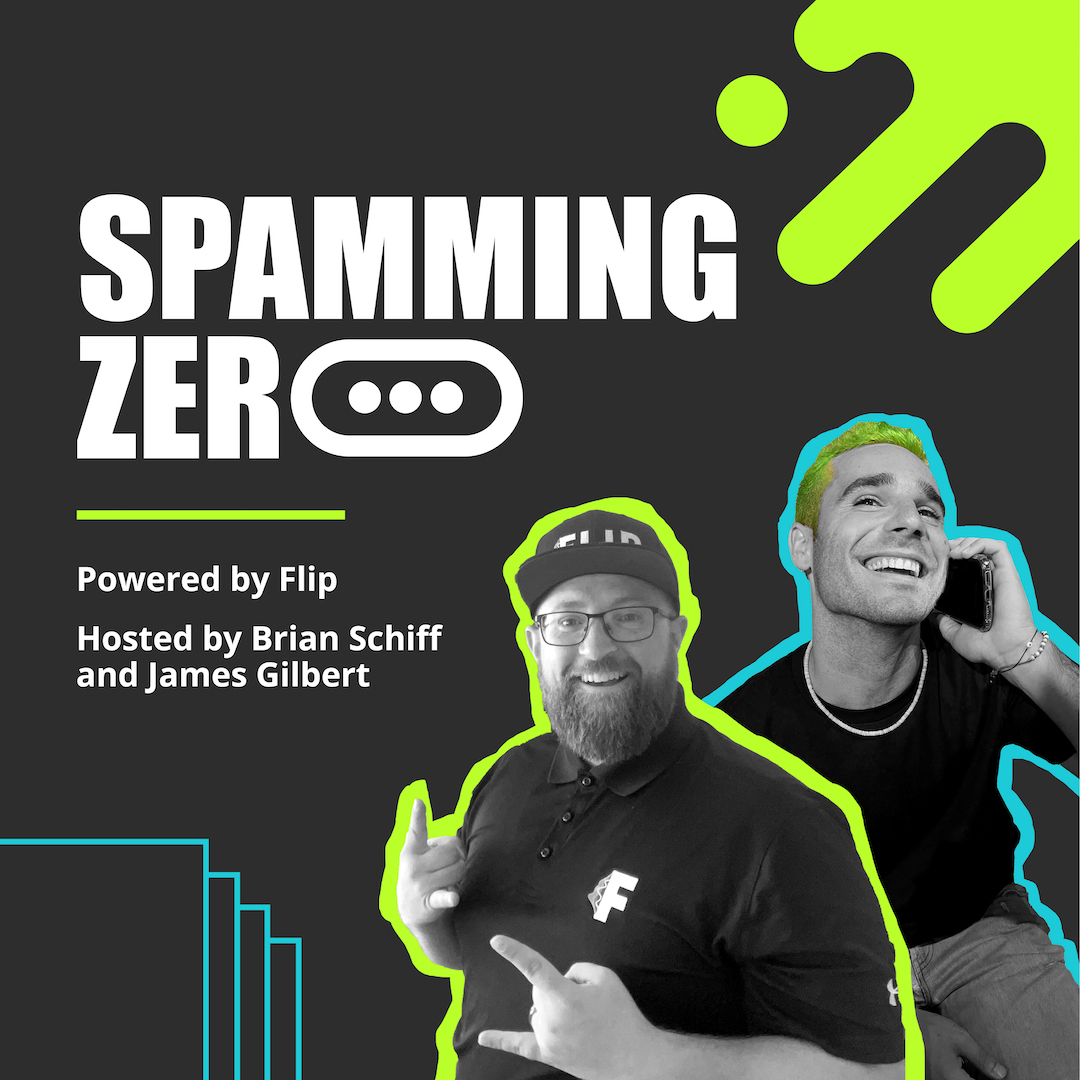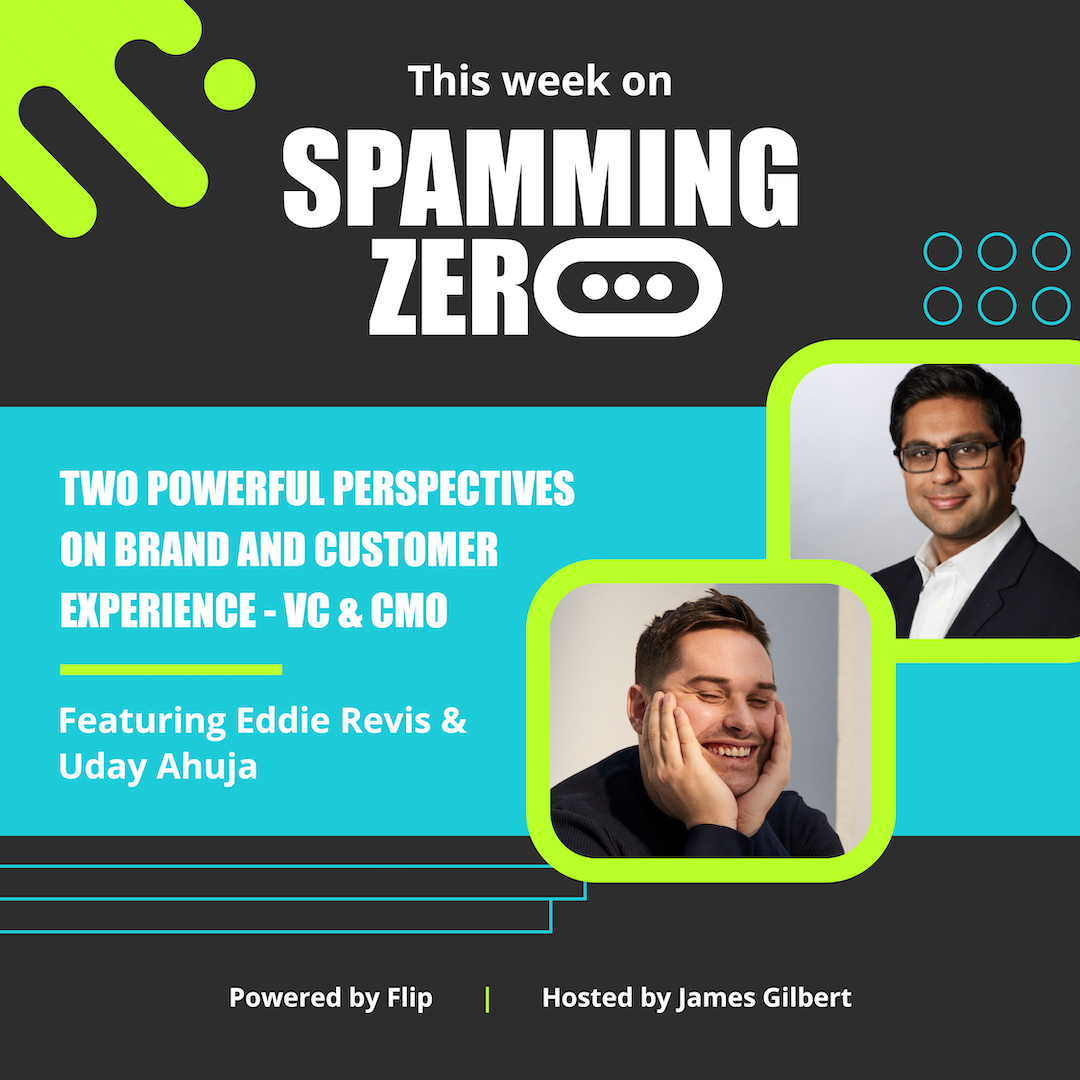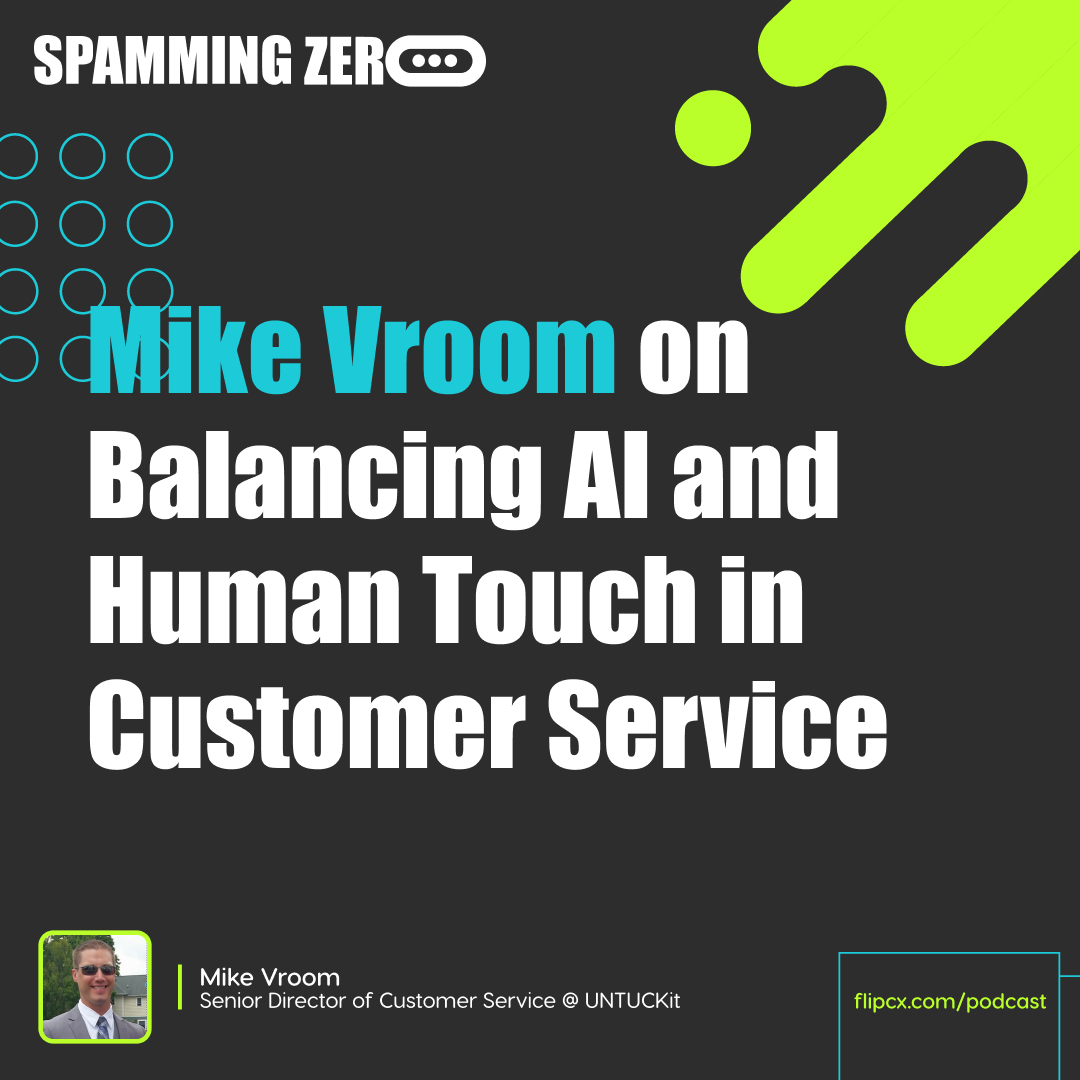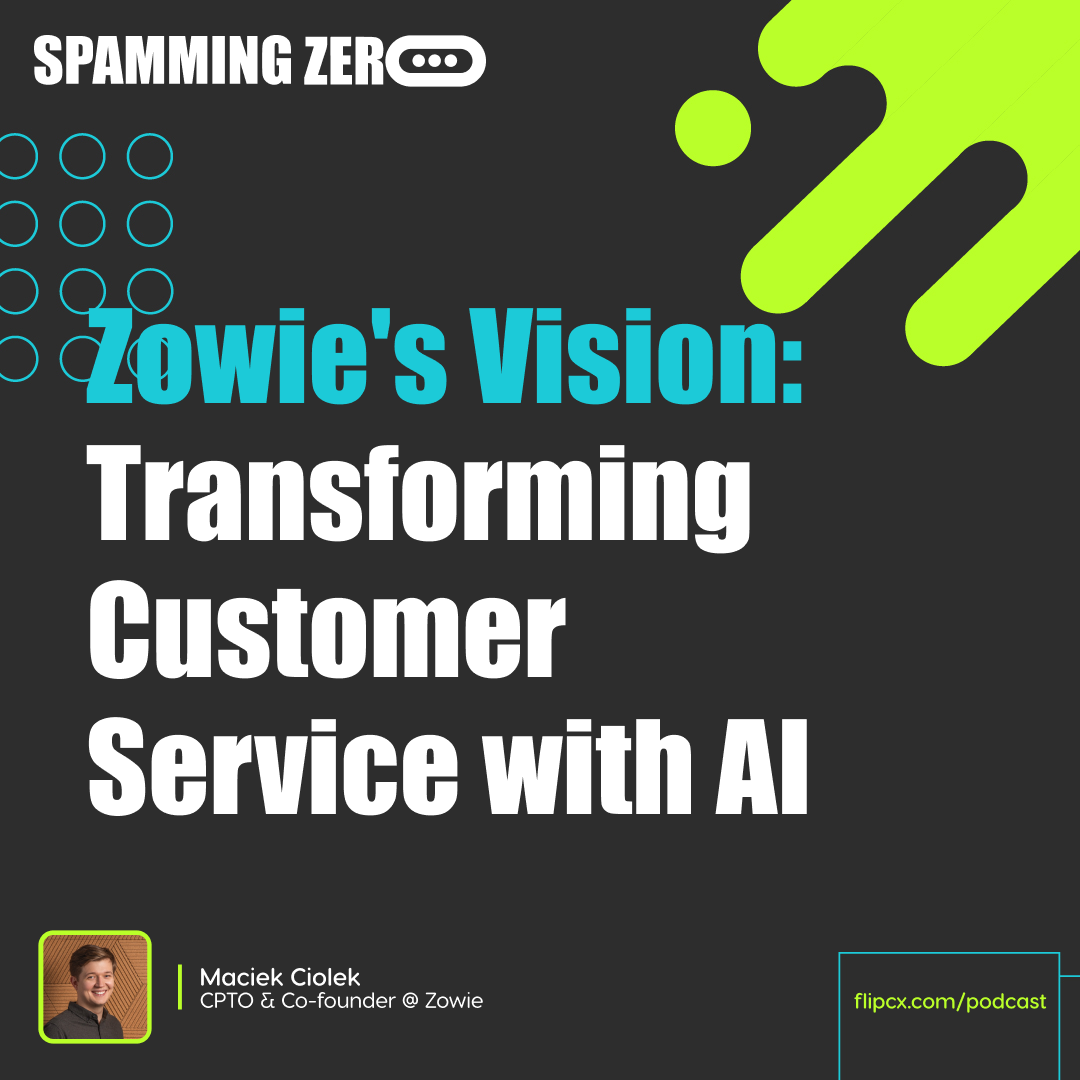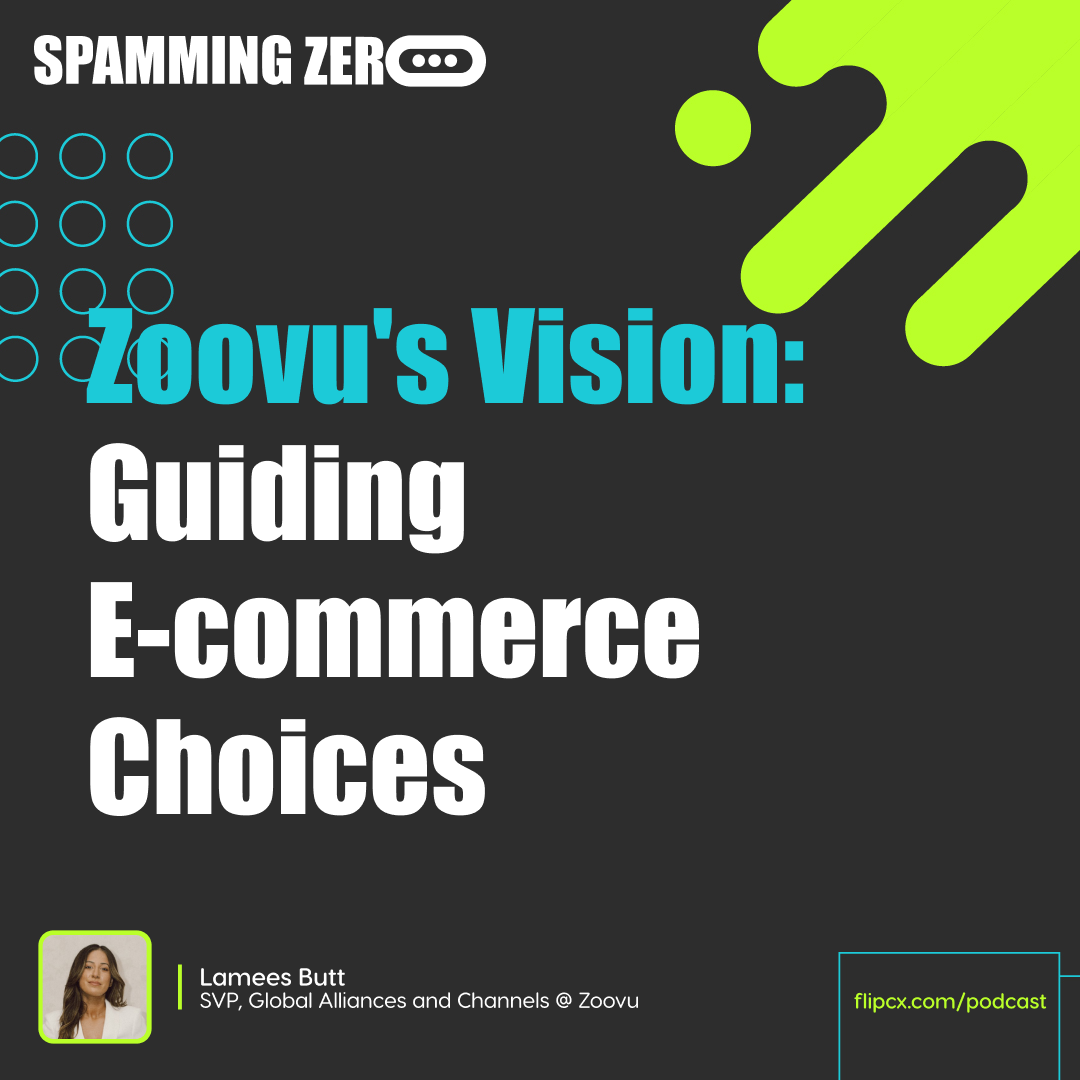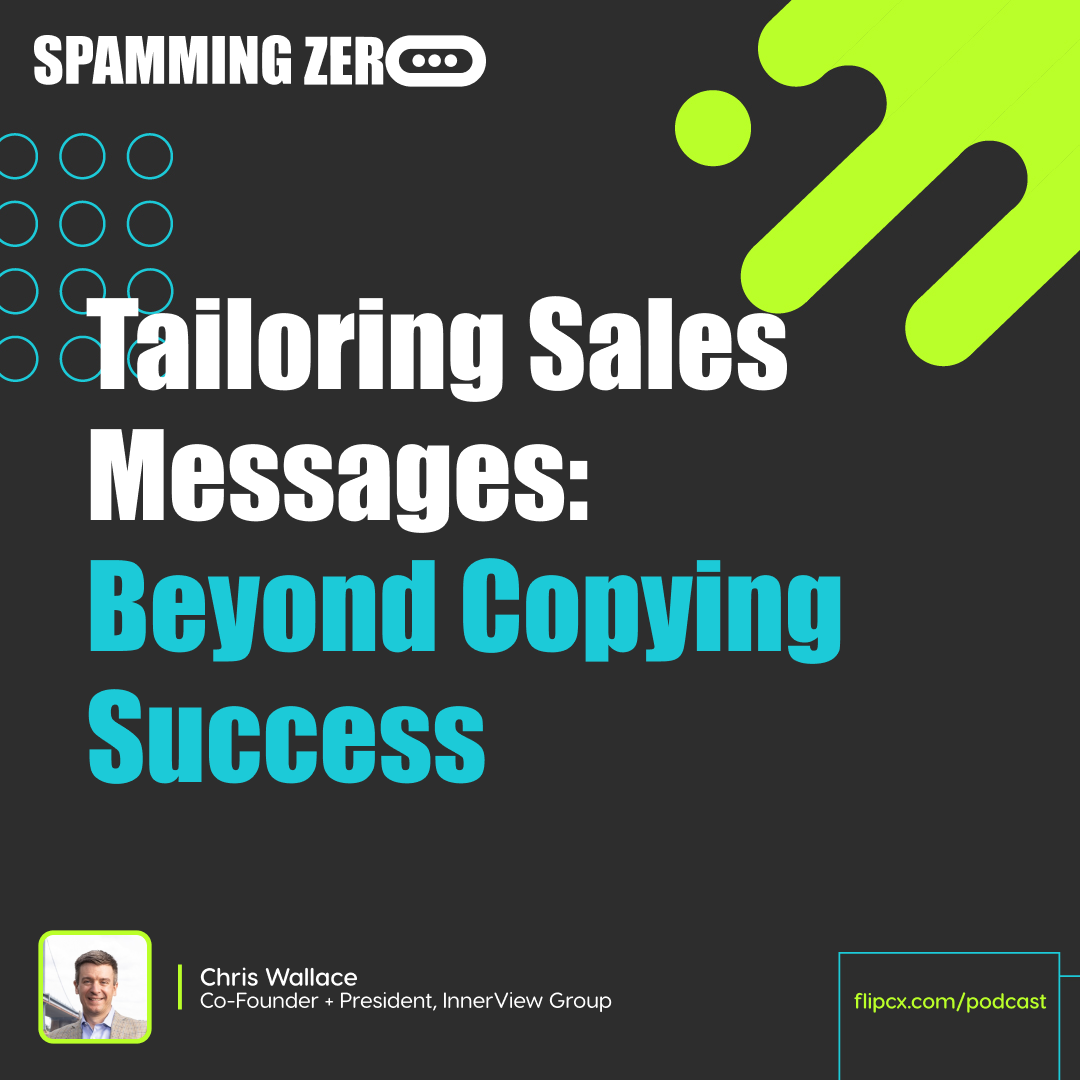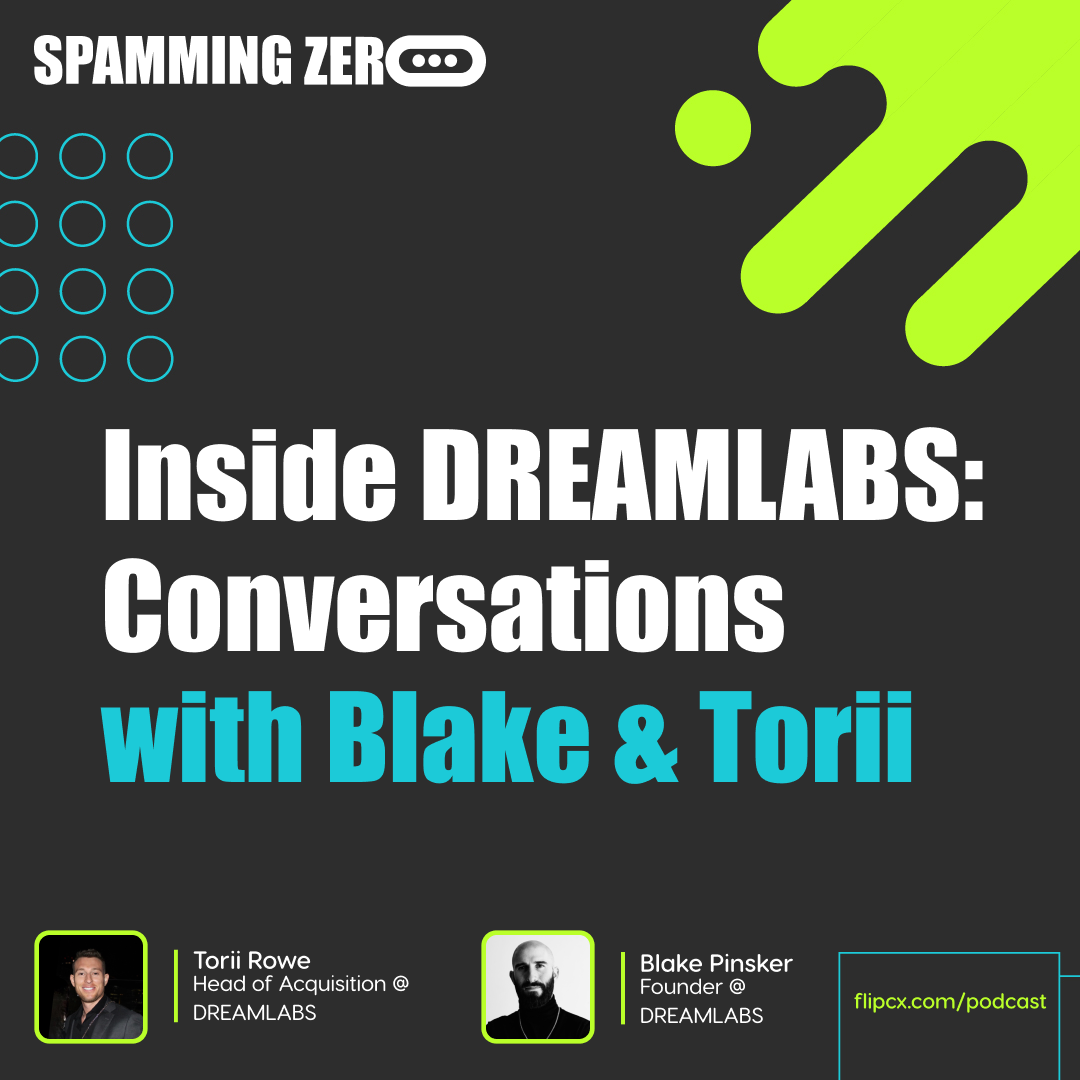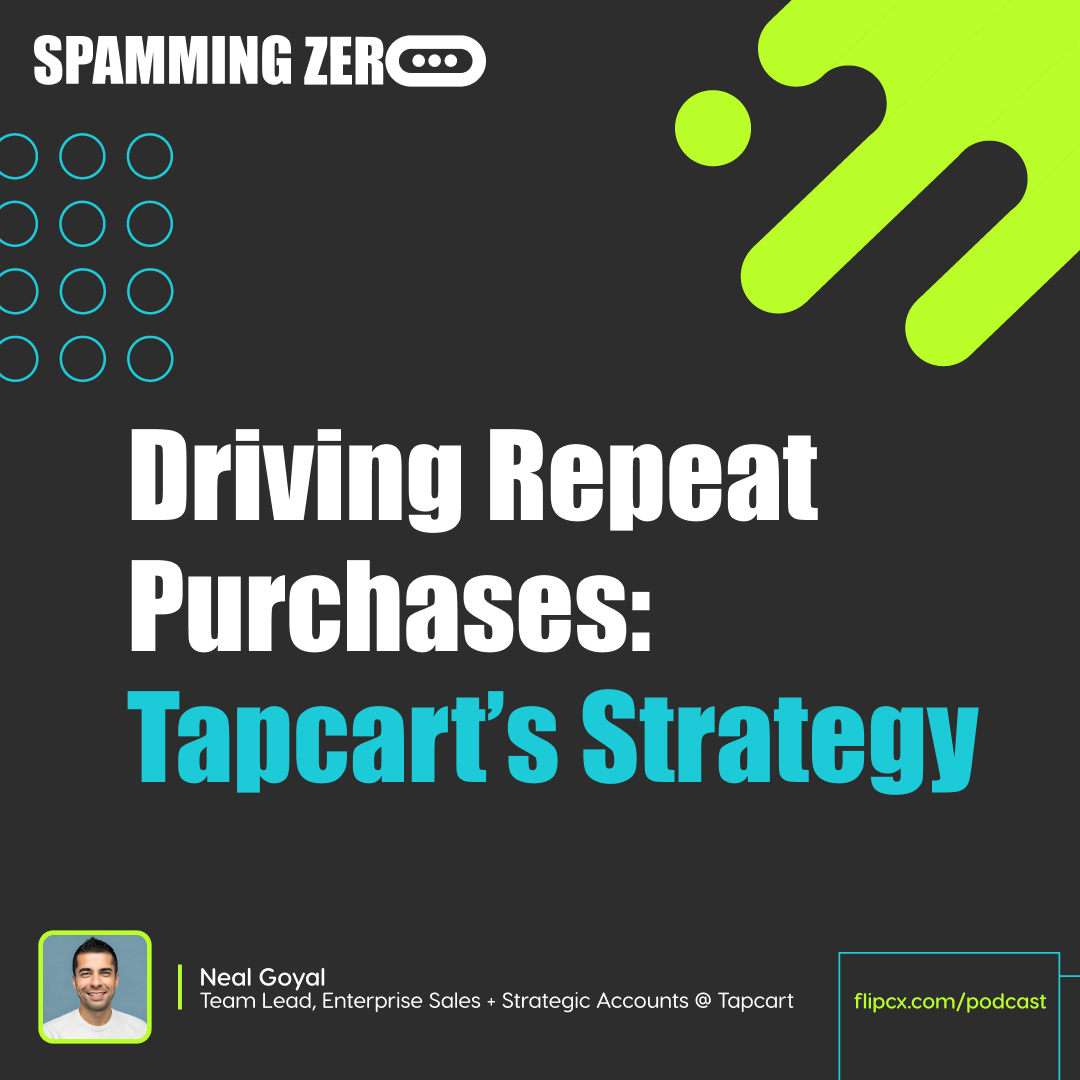Episode 42: Two Powerful Perspectives On Brand And Customer Experience - RSE Ventures VC & CMO of Magnolia Bakery
- 0.5
- 1
- 1.25
- 1.5
- 1.75
- 2
James: Hey everybody. Welcome to another episode of Spamming Zero. This month's sponsor of the podcast is Gorgias. If you're not familiar with Gorgias, Gorgias is a help desk, but it's specifically meant for e- commerce brands or D to C brands. I love, love, love, love their mission. Listen to this, we believe that the next version of commerce should be more open and anyone should be able to be a part of it. As a merchant or a customer, we believe decentralized commerce is better for everyone. Their core values maximize your impact customer first. Strive for excellence. Take extreme ownership and 100% honest, I love what they do. Gorgias is one of our favorites. They work with brands like Steve Madden, OLIPOP and others. Too often customer service gets a bad rap and Gorgias helps make sure that that gets a better wrap. Here's a testimonial from a CEO and founder at Darn Good Yarn. Gorgias gives us a wholistic view of our customers. This way we can provide them with fast and personalized help. Love it. Check them out. If you're not familiar with their website, it's G- O- R- G- I- A- S. com. Check out Gorgias.
James: I'm James.
Brian: And I'm Brian.
James: And this is Spamming Zero.
James: What's everybody? Welcome to another episode of Spamming Zero. I am so excited today because we are joined by a CMO and a VC investor, which is pretty awesome because if you actually have ever talked to a CMO, there's always this battle of funds that we talk about with branding and are they really being put to the best use of the outcome of the business. So this is going to be a pretty wild conversation today, but I'd love Eddie to start with you, Eddie, tell the world who you are, why they should listen to you.
Eddie: Oh, I don't think anybody should listen to me. So yeah, thanks for having me on. James. My name is Eddie Revis. I'm the Chief Marketing Officer for Magnolia Bakery. Prior to that I worked at the famous yogurt company Chobani for many, many years. And then before that I was on the agency side leading design and consulting and just huge projects across the globe for brands like Google and other fun ones. My favorite social network is LinkedIn. That's always an interesting tidbit of what people learn about me. And yeah, it's been a blast working at Magnolia Bakery for the last two years. So excited to talk about D to C and growth and the market and what's happening with my good friend Uday, who's also here.
James: Before we have Uday introduce himself, I got to ask Eddie. I'm a sweets guy. So what's your go- to from Magnolia Bakery? What's your go- to?
Eddie: Oh, I know exactly what. So we do, it's only in the bakeries. We don't ship it nationwide yet, but it's only in the bakery, so you got to get to a bakery. But I love our chocolate pudding parfait cup. It's like layers of our chocolate pudding with homemade cream. I'm a sucker for rich like decadent desserts and it just, it's my favorite one. So whenever there's one in the bakery and I'm in the bakery and I spot it, I grab it before it's gone because it's not every day and it's not at every bakery because we bake fresh every day. And so the bakers always choosing and the inaudible always choosing sort of what they want to make. But definitely the chocolate pudding cup parfait for sure.
James: That sounds amazing. There's nothing like chocolate, right?
Eddie: I know. Chocolate and cream can't go wrong. No, nothing wrong there.
James: All right, Uday, welcome to the show. Tell us a little bit about who you are and why everyone should listen to you. I mean obviously for very good reasons, but
Uday: Well, thank you for having me. And you don't need to listen to me. You need to listen to Eddie because I listen to Eddie. So I'll, I'll be a quiet bystander here, but my name is Uday Ahuja. I'm the Chief Investment Officer at RSE Ventures. We're a firm that invests in emerging brands across sports entertainment, media, marketing, consumer and consumer technology. And we have the great fortune of being investors and owners of brands like Magnolia Bakery and through that working with amazing people like Eddie across our portfolio. So we operate at a stage where businesses are in the growth stage. So we come in, help obviously on the capital side, provide growth equity and capital. But to think we do a little bit more than that and work hand in hand, as I said with people, Eddie, to help the company reach its goals in the next stages of evolution.
James: Love it. Well, thank you both for giving those awesome introductions. And I'd like to start it off kind of hot. Are you ready for this? So Eddie, tell us about the craziest brand experience that you've ever done as a CMO, preferably at Magnolia Baker, because I'd actually like to bring this recently. Oh, and tell me about the success of it.
Eddie: My God, which one do I choose? That's a really good one. I think over the last couple of years are, our focus at Magnolia Bakery has been to kind of break the expectation and confines that we're just a bakery in New York City and mom and pop shop, which makes us amazing and makes us great, but we want to reach and meet more people. I'll give you the most recent one that just came out this week that I think is super fire and super fun. Our business, we recognize, we have a lot of people that planned trips around Magnolia Bakery. They love to visit the city, they love to come and check us out. And so my team and I, when we were brainstorming our partnerships for this year, and we were doing it all the way last year, we started thinking, man, would it be wild if we did a luggage collection or worked with someone to make your luggage like the most recognizable bag while you stand in line at Magnolia Bakery before you go back to JFK or LaGuardia? And I'm a big believer in the inaudible idea and I love that computing and I love bringing the idea all the way through to market. And so we partnered with Monos, which is a Canadian, one of the top Canadian and one of the top luggage DDC brands out there. And we convinced them in some wacky world to create a limited edition luggage collection with us that's in our colorways. So it's, these are real colors that we have. By the way, purple icing and banana pudding yellow, they created a 10 piece luggage collection in each of those colors. We launched it this week. We got over 45 earn stories from inaudible to Timeout New York to the New York Post to Yahoo. And it was wild and it's fun. And people took away exactly what we wanted them to, which is it's like we're making travel sweeter and we're making that experience at the airport and TSA and trying to find your bag just a little easier and a little more fun. So I love stuff like that. There are so many that we do every year that it's hard to pick one. So I'll just give you the most recent one, which is that.
Uday: You solve the world problems, which is to have someone distinguish from everyone having the same black suitcase that you sort of distinguish.
James: And you got to open it up or put a little ribbon on it to make sure. Yeah. So that brings me to my next question then, Eddie, related to this campaign as a fellow CMO, when you do something really cool from a brand perspective and you see that it actually really resonated with people, you kind of become a fanboy of your own work, right? So have you yet caught yourself trying to find people with these luggages in the airports taking pictures at all as you travel? Have you found anybody at, because I would really love to see this.
Eddie: It just launched on Tuesday so I don't know Monos's shipping times, but I doubt they're in the airports yet, or just this week that we're talking. No, but I think yeah, definitely being proud of our work is a big marker of success. And I think working with Uday and the team at RSE, we want to represent the brand to our consumers in great ways, but we also want to represent it to other stakeholders and just as a breakthrough brand that we're creating something special and doing something that others aren't or can't or are scared to do. So yeah, I love, my team knows, that's why LinkedIn's my favorite social network. I love celebrating work. I love talking about work. I think it is what makes working fun. I love my team getting my team, the VP of PR on my team, she just got a byline in Adweek for the partnership and I was printed out, hang on the wall. Great job, Sarah. You got what you wanted out of this for your career and where you're going. So it's really fun to celebrate work and have fun. And the team knows, I love to market the marketing so they get constant updates about everything we're doing.
James: I love it. Well, Uday, let's bring this back to this story and that you've been obviously seeing and believing in as Eddie has communicated to you and several other areas. But I'd love to hear from your perspective, just in general, how do you think other e- commerce brands, or for example, you guys serve a lot of the sports entertainment too, how do you think these brands need to think about brands from an investment perspective?
Uday: It's changed right over the last two years. A lot. I think we were in an environment over the last few years where money was flowing in excess. And so really from an e- com standpoint, CAC mattered but didn't really matter. You were acquiring customers, it was growth at all costs. As an investor, I've definitely seen that attitude sort of in the broader industry shift and change. It's not growth at all costs, it is very much sort of let's focus on the things that are important. First order profitability, let's make sure that there is a long- term value to this customer that we're acquiring. So this is what we spend a lot of time talking about. E- commerce direct to consumer is an important vehicle for Magnolia to get sort of its products in the hands of people nationwide. But we all want to achieve that goal, but we have to do that in a really, really disciplined way. And I think that differs from company to company and sort of their philosophy. But there's definitely been a retrenchment in the last six months to a year where you've seen all these customer acquisition costs spiral out of control, but frankly, venture capital dollars aren't there subsidizing that customer acquisition anymore. So that's been sort of a marked shift that we've had in the investment landscape in the last year relative to that three to five year window before that.
James: So then, I'm going to ask, we're stay with Uday just for a second, Eddie. Okay? So let's say a direct to consumer brand comes to you, they want you to invest. What's the blueprint for success right now as an investor? And you look through that lens, what's the blueprint for success?
Uday: Yeah, I think it has to do with that equation, right? Sure, you should spend money acquiring customers and that is the business at the end of the day. But what is the long term value? What is the long tail of that customer? I think that's almost became a forgotten part of the equation. The packaging or the brand or the ad will sort of make you trial the product, but the product and the experience will make you buy it again. So is that translating? How do you look through the numbers and the analytics to make sure that that is actually happening and the company has, okay, maybe you lost some money on that first order, but what is the long- term value of that customer so that you're not upside down? So I think all those factors are really, really important. It is harder for a business like Magnolia, candidly, where it's occasion based, but you got to win the day and create the best occasion and the best experience for them so that for every occasion and every time they come back to you because you did such an amazing job for them. So that may sound a little sort of nebulous, but that's what the story that the numbers need to tell you right? Is there passion for the brand, is retention there? And I think if you're talking to me about the two most important metrics in a sense or three that you triangulate be between LTV, CAC and retention, and I think those are the ones that we would spend a lot of time sort of sifting through.
James: I actually love what you said Uday, because you've actually literally just validated my fundamental belief as a CMO for ever. And that's that brand experience is much bigger than just these moments. As awesome as Eddie's campaign was around the luggage and how he's going to see the fruits of that happen for a long, long time. However, it's not that campaign that ultimately matters to your point, it's the overall experience. And I think so much of brand gets lost in that and that fundamental concept of really what brand is exactly, I think I've said this probably a million times already on this podcast, but it's the definition that Disney gave and that's the product of a thousand interactions that happen with your customer and the people that engage with you. So every interaction matters, but you can't necessarily invest in all of those interactions and tackle them. So let's now go back to Eddie and then we will have you answer the same question after him. Eddie, what's your advice that you would give other brands to try to tackle these bite size pieces so that they can have a fundamental focus on the customer?
Eddie: That's a great question. I'll put it in context of Magnolia Bakery and our evolution as a direct to consumer brand and company. For many, many years we were out of the curve almost in shipping our cupcakes and pudding nationwide. The pivot that happened was we relied on a lot of other companies to do all of those little interactions. We never had a help desk before. We never had consumer care before. We never had to answer 20,000 emails over the holiday period of where's my package and can I change my order? And I messed up my credit card. And so my advice to other brands are, especially CMOs and people in marketing, is to remember that a good ad can only go so far. Why would I spend the money I talking to team about this all the time? Why should we be spending the money to convert Uday was saying and getting and get a great, which we can do and a great LTV, which we have, and a great retention rate, which we have if the package doesn't ship on time or if the consumer care email goes unanswered? And so I think the best place to focus on other brands and for other marketers is to really not lose sight of those ancillary, those other touchpoints that are happening around the ad. Because the greatest ad in the world could actually turn a customer away. I could make the best TikTok ad in the world and have that person convert and then the product is sold out or they can't get it the date that they want or we mess up fulfillment or we put the wrong item in or we or FedEx, even worse when he can't even control it, FedEx's plane doesn't take off to Nashville or wherever it's going. And so the thing that we've talked a lot about with Uday and the RSE team is that idea of slow growth. We could turn the faucet on and just jam customers into the website and get them to order, but we have to do it at the right times in the right places because if we don't, we are forgetting that there's a whole operational and backend and supply chain that is reliant on the ad working, but then all that other stuff working too. So that's probably been the biggest thing is we've been shipping cupcakes for a long time, well before a lot of other brands were. But taking all that in- house created new perspective for everyone here. I remember the meeting where I was like, who's going to answer the help desk emails? I was like, what? Help desk? And I was like, whoa, whoa, whoa. Okay, we got to back this up and we got to figure out what this is going to be. But I think it and the data, I think that one tactic focusing on the help desk and consumer care on my team, it drives a great repeat rate. We know how to take care of our customers and we know how to handle these situations where packages don't make it on your birthday or on your graduation or on Valentine's Day. And luckily those consumers come back for the next holiday.
Uday: Yeah, I think it's the customer mindset and I think what Eddie is sort of alluding to, just putting yourself in the customer's mindset and think about how you want to be receive that experience and across multiple touchpoints. So 100% agree with everything Eddie said. I would just add that the mindset of the customer in terms of being able to call and change your order or being able to say, well, I'm sorry I messed up. And being able to have that easy interaction. Think about your own loyalty to brands. Excuse me, you're more likely to be loyal to brands where you have better customer service experiences than who treated you well. So at the end of the day, you could look at this from an investor perspective or whatever, but simply put, it has to be a great customer experience no matter what happens.
James: I completely agree. Uday, I want to just ask you a follow- up question on what you just said. How often do investors look at brand equity? I know that's sort of broad strokes in what we're thinking about here because brand equity is tough to measure, but how do investors look at it and how do they expect brands to measure it?
Uday: Yeah, I think it's really hard. I think when we're looking at any potential investment, one of the amazing things that we have the good fortune of doing is working with really great founders and learning about their stories and the passionate followings that they have where investors in Momofuku for example. And so you can look at Instagram followers and sort of engagement and how they're being received and Twitter followings, et cetera. Those are sort of high level metrics. I can't say that I've found something that is a really good sort of measure of, hey, how is this brand engaging? There's obviously awareness studies and all that you can do, but at the end of the day there is some sort of soft skill that is around sort of judging how these founders are perceived or valued. How beloved is this brand? But for Magnolia for example, there wasn't one founder behind it, but the beauty of Magnolia was that even though it's 25 years old, it's withstood the test of time. It's always, it's getting more popular. It hasn't lost its cultural relevancy. I think in the past people may have a knock on Magnolia, said, " Hey, it was left behind with the Sex and the City era." That's not true. That's a lazy, that's a lazy sort of review. When we sort of dug in and did the work, said this is a gem of a brand that needs all the love and support for it to continue to grow and grow. So I think it's two perspectives. You obviously got to look at all the metrics that are at your disposal, however you measure them, but also what can I do to further unleash the power behind that brand or that founder. And I'd say we've obviously been successful in a few instances and feel like we've already done some of that with Magnolia and there's just a long more to do.
James: I love it. So Eddie, your turn. You ready? So I have a couple more questions for y'all. One of them is what's your piece of advice that you would give other direct to consumer brands? What's the one thing that you think that they need to do with brand?
Eddie: Boy-
James: There's not one, right? There's a million.
Eddie: So there's over a million. I'm trying to think of in the context of where we are now with the tailwinds, we have the headwinds that we have coming at us. I would say when you're evaluating ideas and you're looking at tactics and you're looking at investments, whether they're media, whether they're platform, whether they're tech, really thinking about the concept of, you could look at it as compound interest, but more of the ripple effect of it. Uday and the team, we talk this about a lot, which is we do really crazy things here. I mean we made a banana pudding body scrub with TULA. I mean we are doing wild things, but what we really try to do is a, as a D to C brand is we try to think, okay, if I'm going to do this partnership, I'm going to do this really scrappy marketing activation or this sweepstakes, how can I pull as much value and extract much value out of that as I possibly can to drive my business further? Whether that be an email address, whether that be insight into our customer base, whether that be getting product into the hands of our customers in a seating activation. So I think that's always my piece of advice even to my students sometimes is to think, okay, you're going to take this action. What are the three things that come after this that you can maximize or you can extract value out of and use that to evaluate while you're doing it. Not for like, oh, I checked the box. I did it, I made a banana putting body scrub. We didn't just make a banana pudding body scrub, we got 14, 000 new emails into our database so that we could send them emails during the holidays and get half that group to purchase. That's 7, 000 new orders that just came in. So for me, my piece of advice to D to C brands is don't just think about what's going to happen now, but try to think, forecast a few steps ahead and then your ideas and model successes off of those.
James: I think there's something telling though that what you're saying right now because I, so this is why I wanted you on the show for the record, Eddie. I mean you guys are doing pretty awesome stuff and I'm a fan, I watch this stuff. I'm a fan of other CMOs that are willing to take those risks and do something that's totally different. And I think about you all at Magnolia Bakery, I think about Liquid Death, I think about Aviator Nation, which happens to be one of our customers here at Flip and this stuff that they're doing that's totally different. Aviator Nation does these pockets of communities where they release only certain items of their clothing lines to people that come to these musical concerts. That's what it's about. Liquid Death, I mean they sell water for pete's sakes and look at how crazy their brand is on social media and how it's just going viral. I think there's something to be said about that from a marketing perspective in standing out and being willing to take the risk so that consumers can eat it up.
Eddie: Yeah, for sure. Uday tell Matt that we just got said in the same sentence as Liquid Death. Go tell Matt.
Uday: Good company to be good company to be in.
Eddie: Good company to be in. Yeah, totally. Totally James. It's the fun part of the job. It's like D to C marketing, especially when you're building a community and building brands. It should be fun too. And I think that's a core to Magnolia Bakery. We have a wild, wild ride ahead of us and we're just getting started. But yeah, definitely in D to C the advice is think three steps ahead as often as you can around what you're going to get out of it.
James: So on the show we talk a lot about operational stuff because operational stuff ultimately is a lot of where e- commerce and D to C brands have a lot of those cost sucks. It just happens. And so I'd love Eddie for you to talk a little bit more and let's ask a few questions around the operational side of the house. You're right, there's a lot of brands that don't have a lot of control over the supply of what's happening and the fulfillment of an order and things like that. So from an operational perspective, it has a direct impact on the customer service and the customer experience. So what's your advice to also the leaders that are running the operations on what they can do to make sure that they don't have all the control, but what can they control in these situations to make the experience better?
Eddie: Yeah, it's a really great question. Something we do a lot of work on here at Magnolia Bakery, and Uday's smiling because he knows these conversations are happening all the time with us. We have a really unique challenge at our company, which is we bake fresh and our number one selling item, which is banana pudding, has to be basically made to order even for shipping. And so the constraints around the demand planning, the supply, the forecasting, we did a banana pudding. We have a celebration called Banana Pudding Week. It's basically our Prime Day at this company. It kind of was a little sticky thing that kind of happened. And then when I came on board with someone on my team named Adam, we were like, let's just supercharge this thing and see how big we can actually make it. And so we did 50% off banana pudding on our website. Holy cow. We almost broke the facility. We were on the line packing, we're packing boxes. Uday seen it happening. The advice I have for the operators are always, the way that we talk to our operators and our production team partners is we try to keep them along for the journey as much as possible. But then we always ask them to say, when you don't know something or you're not sure about something, you have to tell us because we don't talk your language, you don't talk our language. But at the end of the day, if we set a goal of we want to ship out the most packages we've ever shipped out for Valentine's Day this year, what needs to happen on both of our sides to do that? And that's the way that I set goals with, we have a DC weekly standup production is there, ops is there. That's where we set our goals now with them is we put it in ways that everybody can understand, Hey guys, mother's day is coming up. What did we we do last year? What are we trying to do this year? Don't get into the minutiae of this percent grow with our X, Y, Z. It's like we want to more packages than we did last year. Great. What do we need to do to make that happen? So I think putting it in terms that both operators and marketers can understand is really important because marketers, I'll say this because I am one, we can get really caught up in the minutia and the detail and the data and the reporting, but Uday seen the reports that we signed. We like to just say Valentine's Day, ship the most packages out of the facility ever. Christmas, made the most banana pudding we've ever made in a week. That's what success is. So for operators, it's just putting in a language I think that they can really get behind and understand.
Uday: And I think if I could just add something there, James, I think just strategically sort of zooming out for founders and entrepreneurs to understand what they can do best and what they can't do best and what is a must have for them to control and what is not a must have to control. There are other people out there who can do something way more efficiently and effectively than perhaps they can do internally. So not being so it is one thing to be vertically integrated and own every aspect of the experience and I think that's important, but I think it's not being too precious about that, being a little bit of realist on that front. When is the right time to let go of that piece that's been holding you back? Because ultimately that might be the difference in you being able to have the largest day you've ever had or just being the same as last year. And so I think as you're looking to grow and scale, it's always important to just keep assessing on the ops side, on the supply chain side, on the logistics side, what are our strengths and weaknesses? What do we do well and what do we not do well and should we go find another solution?
James: I love that advice because I think you're right. I think that there's too often people are trying to boil the ocean and tackle it all together and it's okay to not know. I think we all get told that. Just admit when you don't know something, it's fine. I want to kind of stay in this operational side of the house just for a second because the operational side of how a D to C brand operates, it's very complex. There's so much technology that serves really niche things. So this question is actually for both of you, but I'd like Uday to start. From an investor perspective, what advice would you give these technology providers that are coming in, or not even technology providers, just service providers in general that can come in and help fulfill some of these. What advice would you give them on how can they be more efficient to the buy so that it is more cost- efficient for the buyer, Eddie?
Uday: Yeah, I think the problem that we find a lot is that people want to impose a black box solution onto businesses like Magnolia, that frankly there isn't a black box solution. The business is complex. Eddie used the example of shipping out fresh product every day. So if you come to us as a technology provider and software provider and say, these are the things that we do in apparel and trust us. And we're like, no, our business is on the line here. We got to make sure this comes out fresh every day gets shipped in time or we're going to have a really bad customer experience, we're going to have to refund the customer's money and we're going to potentially lose this customer that we spent a lot of money acquiring. So we don't take lightly the transitional costs and the suppliers that we work with simply for that reason. And I think it's hard in food. I think it really, really is hard in food because it is such a unique beast of the perishability and sort of all the unique things that we mentioned. So I'd say there is vertical specialization and sector specialization that matters. But if you are coming to pitch us, make sure you understand our business and the complexities of the business and don't try to impart sort of the black box solution to it. Eddie, I don't know if you have anything else to add, but that's sort of what top of mind for me.
Eddie: Yeah, I would agree totally. It's like the purchaser or the one implementing a lot of the technology. It's what value is this going to bring and understanding the north stars of the company and where we're going. It reminds me, we went through it, we didn't have an ESP before we were standing in the D to C business and we needed an ESP email service provider. And I remember our agency actually recommended someone that they were working with and I was like, no, no guys, this is too narrow of a scope. It's not going to achieve what we want to be in 2, 3, 4 years. So let's invest in the tech now that's going to help us be who we want to be in two years. And now it's really paying off in terms of the segmentation we can do, the multiple lines of business, we have a local ordering side on our site, which is just doing great in terms of pre- ordering. And I think that was a really big miss and an opportunity to say, hey, what's not the tech you need right now? What's the tech you think you're going to need in two or three years? And taking those conversations and doing your discovery with them because it's really easy to say, hey, this is what I need right now, let's plug it in. But I mean we've all been there and six months, you're great now have to change it through the process all over again like RFP and implementation and we just want to avoid as many of those as possible.
James: So the primary listeners of this podcast are direct to consumer people that are throughout any pretty much job in the direct to consumer world. And so whenever we have guests on the show, we always like to ask certain questions to help put them in a consumer role for just seconds. So that's what I'm going to do this question. I'd like you both to answer it separately. Tell me about an experience that you've had as a consumer from a brand perspective that left you like, wow, that was awesome.
Eddie: Wow, that was awesome. Oh, trying to think of a recent one. Direct to consumer brand?
James: Or any, I can actually not just direct to consumer, just like you experiencing a brand experience, that left you with memories that you're like, holy smokes, that was awesome.
Eddie: Yeah, so there's a brand called APL, which is a brand of sneakers. They're super comfortable, they're also very expensive and so I only buy them every so often.
James: A sneaker guy, I like it.
Eddie: But I remember there, I bought a pair and something was with the quality and it just wasn't where I needed it to be. And in my head as I was getting ready to talk to customer service, okay, this is going to go one of two ways. It's either going to go prestige brand and they're going to take really good care and they're going to recognize that the product that something was with the product quality and slipped the cracks and made it out or it's going to be the opposite. It's going to be every other direct consumer brand sometimes where it's a runaround on a phone call and send an email and do this, this, this. Luckily it was the former, but yeah, there was an issue with the pair of shoes I bought and I would compare it to, if anyone remembers the Nordstrom's days of customer service, it was like no questions asked. Take full accountability for what happened, provided a solution and was super efficient and fast. And I used it as actually an example I remember with the woman on my team who leads consumer care and I was like, I didn't hear the word no once in the conversation I heard the word no, but it was always followed with no, but here's what we can do or here's what we're going to do. And so I really appreciated that with the brand because it really was, it could have gone two ways, like big D to C, omnichannel, business, customer calling in who spends maybe purchases like once or twice a year. But luckily it went down the other way. So I really enjoyed that experience with the APL team.
James: Good one. What about you Uday?
Uday: Yeah, I think similar experiences with several sort of e- com brands or orders, but I feel like that's increasingly has to be table stakes now, otherwise you just won't be in business very long. I think mine's a little bit more simplistic. I think it's about going to your local coffee shop and them actually sort of remembering your name, which is just one of those weird things that engender sort of loyalty and a great customer experience. And the reason I focused on that a little bit more than maybe if we weren't in the business was we are large investors in Bluestone Lane, which is a Australian thematic premium cafe and coffee shop. And they are incessantly focused on trying to get that right, hospitality at scale and making sure the locals are well recognized and you feel special walking in. And so I actually walked into a Bluestone Lane recently that is sort of open in the suburbs, which is new and nobody knows that I have anything to do with the company. And because I had been there now a few times they recognized me and my name isn't the most common. So kudos to them for remembering that. And I thought that that was just indicative of a great customer experience, which is just really, really simple, but sort of surprising nevertheless. So that's the brand or the experience that I would point to most recently.
James: Love it and I agree with both of you. I have a similar experience Uday, but mine was at a hotel. There was a hotel that I went, it was the same hotel I went. Never missed this hotel when I was traveling in to go see my team and I was traveling once a week, I'd be there for three or four days and after the second stay, they knew my name. They recognized me every single time I came in. That was, I wouldn't give them my credit card for them to know my name. There's a difference people, so they remember. So I love those examples. So thank you for sharing that. Before we end, we also like to ask all guests this like a question that is also relevant to a topic that we talk a lot about on here. So if you aren't familiar with why we came up with the name Spamming Zero for the podcast, I'm going to give you a little context just for a second. Everybody dislikes the experience of calling customer service and support. It is probably the most common disliked experience across the board. And so we came up with the name of Spamming Zero because typically people are trying to push zero to get to an agent as soon as possible when they call the phone number. So when we think of this, we call it voice. What is voice in your mind? We'll start with Uday.
Uday: You mean when you call a customer service line? What's going on inside my head? Basically?
James: Yeah.
Uday: Oh, please don't make me repeat my story three times. Please don't make me repeat my story three times. Yeah, I mean it's an exceptionally low bar, right? In general. And so I have low expectations and so when there's a seamless experience, it's refreshing and buys my loyalty. I'd say at least in my experience, the worst perpetrators of this are airlines or things like that where you just get hopped around and hopped around. Yeah, it's a low bar and I just pray that I don't have to repeat my story over and over again.
James: Love it. What about you, Eddie?
Eddie: You're talking to the guy that until maybe four years ago still called his bank to pay his credit card off because I was like, I need to hear the person say confirmed. I'm like, I'm wild with this stuff. No, I think my voice would be, I'll give you like it in a specific example. So I'm part of the iPhone trade- in program and the carrier lost the trade- in iPhone I had sent back to the facility and I was like Inspector Gadget. I was like, I have the tracking information, I had where everything was going. I had this signature who signed for it at the Carlisle, Pennsylvania return facility for Apple. I had all of my data and I'm sitting there spamming zero and pressing and pressing it. And then I finally get into somebody and in my inner head I'm like, just please listen to what I have prepared and what I have done. Don't put me through your run around of your screen and your questions and this. I'm like, I think I asked the person on, I was like, can I just email you? Can I, can I send you all this data, all this information? They wouldn't let me do that. I understand why, but I think my inner voice is always, please just trust what I'm saying is true. You have no reason not to. I was like, why would you think I would not send the phone back? Of course I sent the phone back, the carrier lost it. I could give you all the information, but I think that's an important lesson for you to see a brand is coming from a place of no can really hurt you, especially in customer service as a brand. If you come from a place of no, or you immediately are assuming it's the customer's fault, as they're waiting on that line waiting to talk to an agent, it just creates a terrible experience. And so always just coming from a place of openness and empathy and not a place of no, I think is what I always hope in my head on the phone because we have no reason to lie. Customers have no reason to make things up. Maybe there's one or two along the way, but I was like, can can you just release my money because I sent the phone back? I promise.
James: Oh, I love it. Well gentlemen, we are at time, so I want to thank you both for joining us on the show. I think both of you gave some great advice and some input, so thank you.
Eddie: Cool. Thanks James.
Uday: Thank you for having us.
James: If you have not yet subscribed to Spamming Zero and you listened to this show, every week we have a new episode, please do so. We'd love to hear from you also so if you want to reach out to me on LinkedIn or any of our team at Flip, we'd be happy to learn about any guests that you want to have on the show or any topics that you want to cover that we have not yet covered yet. Stay tuned.
DESCRIPTION
Trying to understand others' perspectives? Good on you! That's an especially important trait when it comes to building both successful brands and the customer experience so essential to their survival.
We got to sit down for a chat with a CMO and a VC—two of the best in the biz—and it's a conversation we can’t wait to share.
Magnolia Bakery CMO Eddie Revis, and RSE Ventures CIO Uday Ahuja join us - this week, on Flip CX’s Spamming Zero.
What’s Covered?
- A bit of background on both
- From an Investment perspective: How eComm orgs should think about brand
- Uday’s Blueprint for Success, for D2C brands
- Keeping a fundamental focus on the customer
- Measuring brand equity
- Eddie’s best advice for other D2C brands
- The operational side of CX
- For service providers: avoiding the “Black Box Solution”
- And more
Ready for more fantastic Spamming Zero conversations ahead? Listen, rate, and subscribe on YouTube, Casted, Apple Podcast, or Google podcasts.
Today's Host
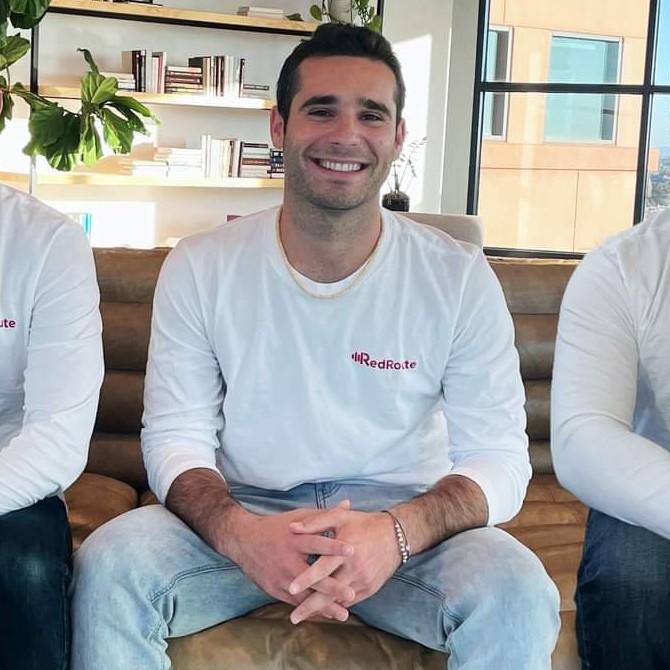
Brian Schiff
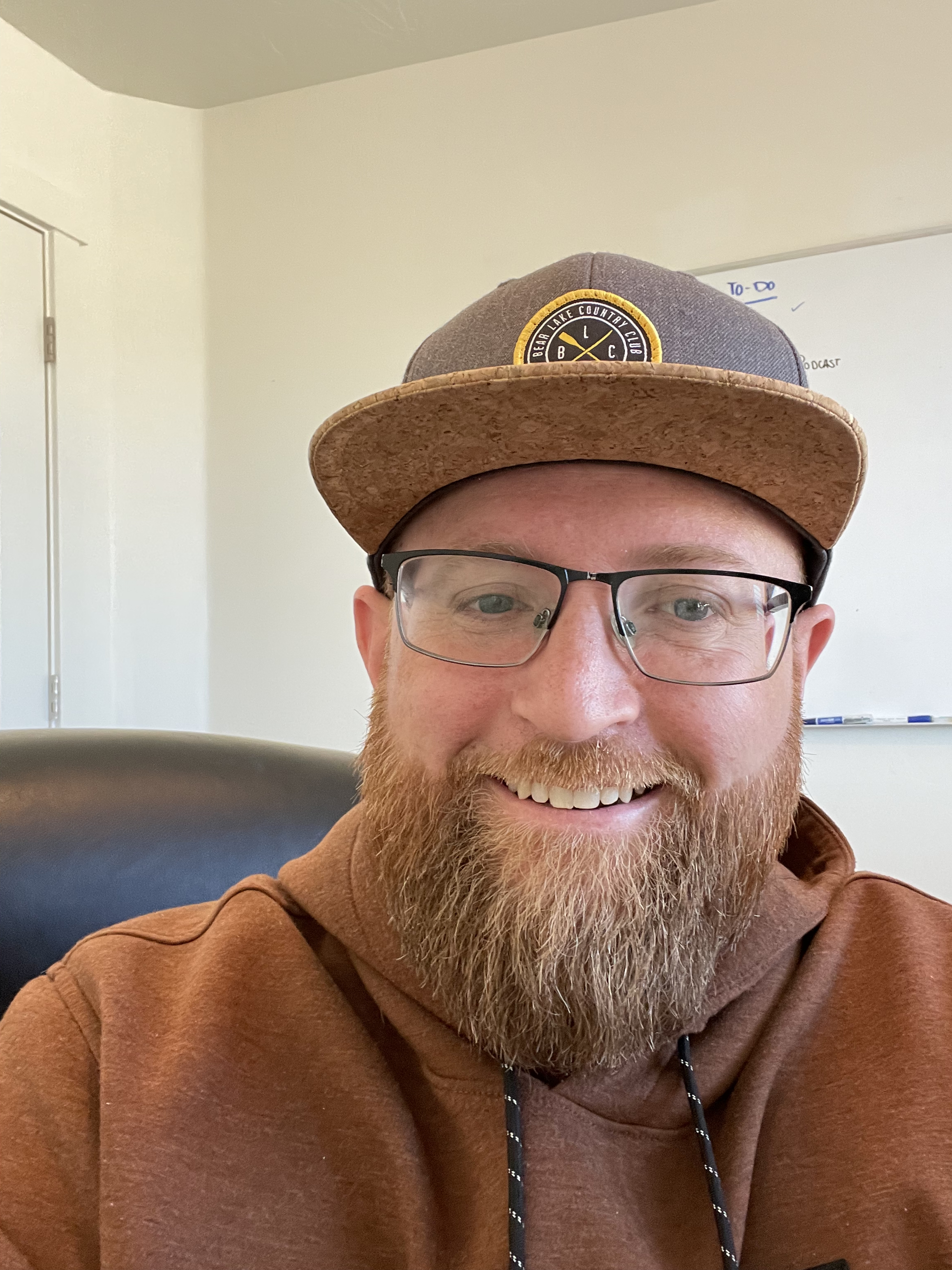
James Gilbert
Today's Guests
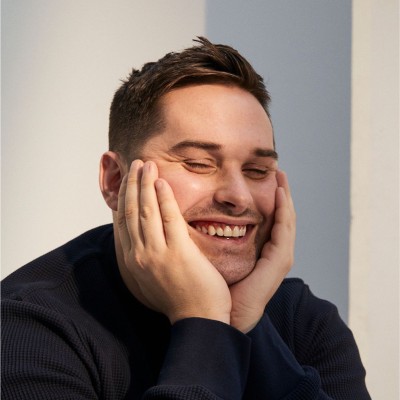
Eddie Revis

